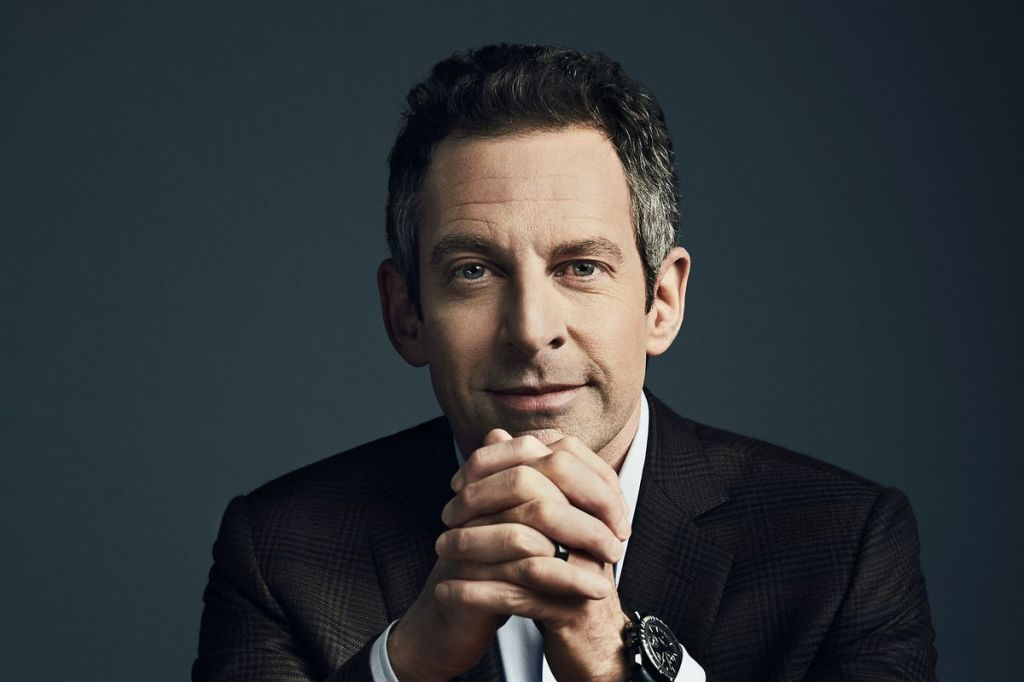Sam Harris is one of the most famous of the New Atheists. Together with Daniel Dennett, Christopher Hitchens and Richard Dawkins he was referred to as one of the four horsemen. He widely critiques religion (in a good way I believe) and tries to combat moral relativism. His battleground is set out in his book The Moral Landscape.
Sam Harris pits two philosophical movements against his own view of morality in his The Moral Landscape. The first one is morality based on religion. Much can be said for this and as the New Atheists have shown, there is enough critique to be had against religion. Morality has always been linked with religion. Religion advertises itself to answer the questions why someone should be moral, what actions are right and what makes a good person. Yet, across the world, atrocities are committed in the name of religion. Women rights are being suppressed, homosexuality has the death sentence and leaving your religion might mean leaving your life. Harris asks why religion, if it keeps doing these things, should have the monopoly on morality.
The other movement is the side of moral relativism. This movement claims that there are infinite number of interpretations in morality and we cannot say that one is better than the other. Morality is something utterly subjective for every person and to claim that we can know something about it, would be hubris. The differences in morality are just culturally influenced and what is good depends on the culture you’re in. If beating your wife with a rod is good in your society then it is good. Harris also wants to give an alternative to this movement.
Enter the moral landscape! Imagine a vast landscape of peaks and valleys. The peaks represent the most good. The valleys represent the most suffering. There are many peaks and many valleys. With this Sam Harris wants to give the idea that there are numerous interpretations of what is good and what is evil. But that they aren’t all the same. Some are better than others, while some are worse than others.
The question remains though: “Why are something better than something else?” Why is giving money to charity better than killing your best friend? For religious people it is because God said so and for moral relativists there is no answer to that question. But Harris rejects those two answers. His answer is a science of morality.
People believe that science cannot possibly answer questions about morality. That is the place for religion and philosophy. Science has nothing to see there. Harris disagrees. As he states: “Values translate into facts that can be scientifically understood.” For Harris, when we talk about values, we are actually talking about facts. States of the brain can be analyzed to see how we feel. Those are facts.
But first we have to address what is meant with ‘good’. The philosopher David Hume famously stated that we cannot say from what is, how something ought to be. This is regarded as the naturalistic fallacy. Just because something is in nature, that doesn’t mean that it is good or that it ought to be that way. Diseases exist in nature but that doesn’t mean that diseases are good. This is also represented in G.E. Moore’s Open Question Argument, which states that whatever we define good with, we can then ask the question if that thing is good. For example, if I say that good is pleasure, as the Epicureans would claim, I can ask: “But is pleasure good?” Surely there are times when pleasure isn’t very good. Like when you’re addicted to heroin and find pleasure in another shot. Or when you enjoy murdering people. For Moore, the only thing we can define good with is ‘good’.
Sam Harris argues that there is one answer which solves the Open Question Argument. If we equate good with well-being, then we solve the regress. Surely well-being is always good? Ah, but I see you thinking: “But what is well-being then?” Well, for Harris “the concept of well-being is like the concept of physical health”. What constitutes being physically healthy can change across time. Being physically healthy now might mean being able to run every morning, while it might mean to be able to run a marathon in half an hour in the future. Well-being is the same. We can’t really define it, but we see it nonetheless or we see it when it is absent. Harris sees well-being as the foundation. Every question we ask about morality inherently comes back to well-being. We might be wrong about what well-being is, but that doesn’t mean that it doesn’t exist. As Harris states: “mistaking no answers in practice for no answers in principle is a great source of moral confusion.”
I do believe that there are some problems with the moral landscape. In his concept of well-being, Sam Harris creates a new Open Question Argument. Just switch good with well-being. We can always ask if something is well-being. According to Harris we can look at the facts of what well-being is. But I would argue that there are concepts that doesn’t provide well-being but are still good. Freedom is one of those concepts. Freedom isn’t necessarily something that provides you well-being. Being free to drink alcohol isn’t something that will give you well-being, the same goes for smoking. Yet, we value the fact that we’re free to do so even if it is bad for our well-being. Also, Harris doesn’t solve the naturalistic fallacy. He just circumvents it by talking about the bridge between fact, beliefs and values.
The Moral Landscape of Sam Harris is a nice alternative to the two ethical movements Harris lays out. Unfortunately, it goes against extremes and doesn’t really try to go up against the more nuanced ethical theories out there. I believe he just takes easy targets, which are easy to solve and tries to present his point of view as the only alternative. Virtue ethics, intuitionism, the more nuanced debate between cognitivism or non-cognitivism are all left out. Which is not to say that this is a bad book. Rather, it leaves me wanting for more reasons why I should accept the moral landscape. But if it goes away from religious fundamentalism or moral relativism, it’s a valuable addition, nonetheless.




Leave a comment